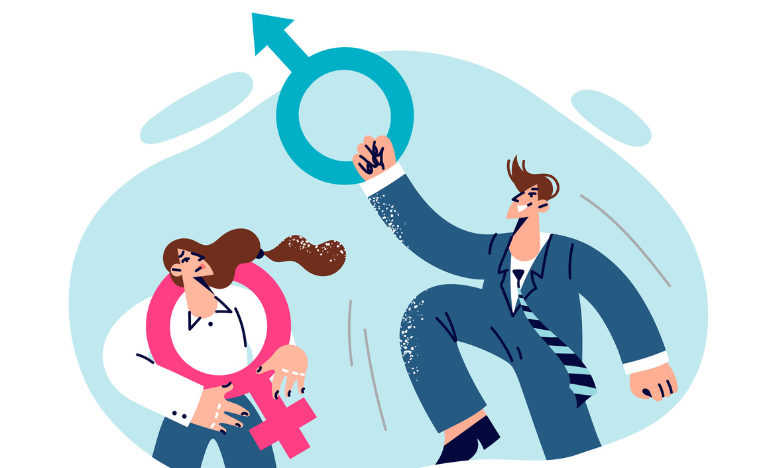The sisterhood of ‘gender sellouts’
WiCCD helps women defence lawyers across Canada support one another in the face of gender bias in the criminal bar and beyond

There aren’t many women criminal defence lawyers in Canada who specialize in impaired driving cases, but Kyla Lee of Acumen Law in Vancouver is one of them.
Working in a male-dominated field means she faces criticism that her male colleagues don’t seem to.
“It’s so much easier for people to attack us for defending people facing these offences, because you can call us ‘scum’ who put killers back on the road,” Lee, the past chair of the CBA’s criminal justice section, told the Verdicts and Voices podcast recently.
She jokes that if she had a dollar for every time someone’s called her that or she’s received vitriol for doing her job, she could retire by now.
“My colleague in my business here, he does the exact same thing I do, and comments on his social media are by and large positive, thanking him for protecting the innocent and all of that,” Lee says.
“It's not the nasty personal attacks that, for whatever reason, I seem to generate. I think I know the big difference between me and him.”
Lee joined fellow criminal defence lawyers Hamna Anwar of Lindsay Law and Anita Szigeti of Anita Szigeti Advocates, both from Toronto, for a panel on the podcast. They talked about obstacles they’ve faced as women in their field and the community they’ve built to overcome them.
Their discussion touched on high-profile sexual assault cases, like the 2016 trial of Jian Ghomeshi and the recent Hockey Canada trial, where female defence lawyers have taken heat over the clients they’re representing. The Hockey Canada trial even elicited a Toronto Star column asking why they defend violent men in court.
“For women, there's a double-edged sword - it's the crime itself, and then it's who is defending the person that's been charged,” Anwar says.
“Generally, that's men. Women do tend to be victims of sexual assault by men, and we’re considered sellouts to our gender when we're representing men in these cases.”
She says that view is “obnoxious.”
“This is something unique to our profession. I think physicians and other professionals don't go through the same thing. That’s generally because people have a lot of emotions around these types of crimes.”
‘Implicit gender biases’
Szigeti, who is known for defending people with mental illnesses, agrees that women get additional flak over who they represent.
“There are implicit gender biases on a lot of different levels. One of those is that women are meant to be carers and nurturers. Projected onto us is a politic, believing sexual offence survivors, the #MeToo movement, all of that,” she says.
“I think with respect to sexual offences, we are considered traitors to our gender in defending a man accused of such crimes. But I think even more broadly, a lot of people, including within our profession, are simply threatened by women doing work that has historically been done by men.”
Szigeti says there’s a sense among some that women defence lawyers are cutting into the business and status of men in the industry and pushing out the older, whiter guard.
“We're back to the zero-sum situation where there's simply not a recognition that one person's good work and success as a lawyer does not have to threaten other people having the ability to do good work.”
Support and advocating for solutions
Lee, Szigeti, and Anwar are members of Women in Canadian Criminal Defence (WiCCD), an organization Szigeti founded to support and advocate for female and gender-non-conforming criminal defence lawyers.
After years of battling gender-based discrimination in her career, Szigeti had a particularly nasty experience a few years ago when she was publicly chastised by a male lawyer, who criticized her skills. That led to an outpouring of messages from women who sympathized with her.
“It just helped to crystallize for me what had been percolating in my own mind for years, and that's the gender bias with which the criminal justice system treats women.”
Now 750 members strong, WiCCD is designed to help women defence lawyers across Canada support one another and advocate for systemic solutions to foster gender equity in criminal defence.
“[Gender bias] is not restricted to judges or Crown attorneys or our clients, because to some degree, we expect that from them, even though we shouldn't and we don't tolerate it,” Szigeti says.
“But our own colleagues in the defence bar also suffer the same implicit biases that I want to bring attention to and help them to recognize over time.”
Lee says being part of the organization has given her a “homey” feeling.
“The challenges we face as women practicing in criminal defence law are so unique that we needed to have a space where we could get together and talk about those challenges, because it's those challenges that may push us out of the profession eventually.”
That includes the obstacles women often face when trying to secure adequate pay for maternity leave.
“These things could be alleviated with structural supports, recognizing that achieving equity for women in Canadian criminal defence is different from equality,” Szigeti says.
“We don't need the same supports that our colleagues on Bay Street or in the Crown's office get. We need more and different supports geared toward our very unique pressures and situation.”
Tune in to the full podcast episode to hear more from the panellists about their personal experiences, the work of WiCCD, and what needs to be done to help keep women defence lawyers in the profession.


